
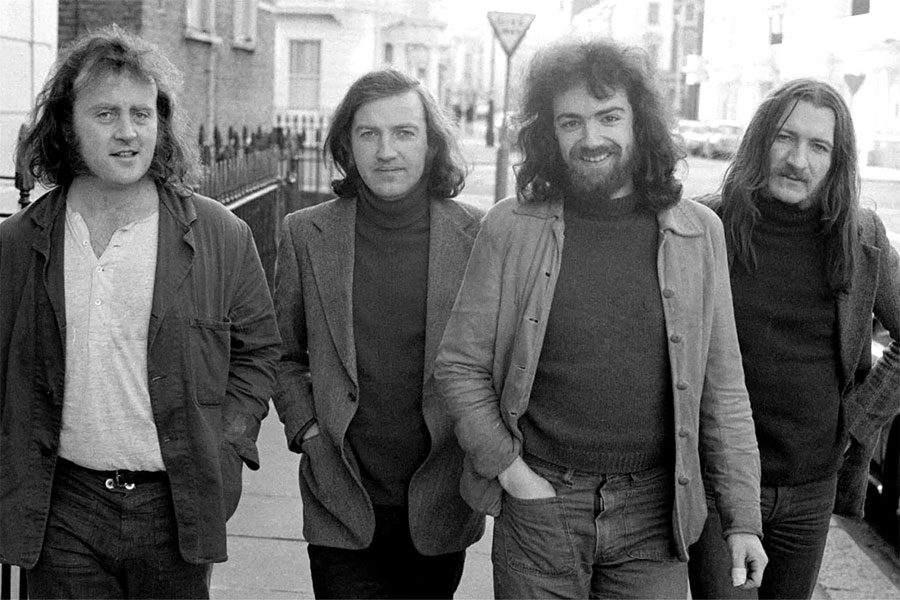
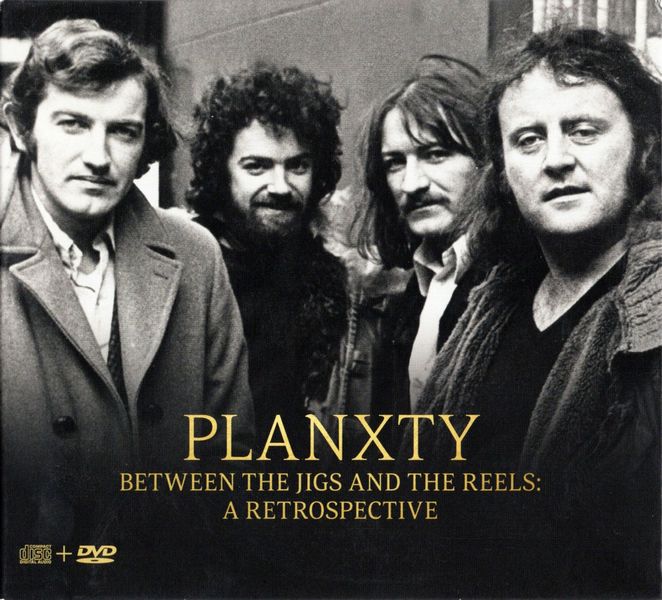 |
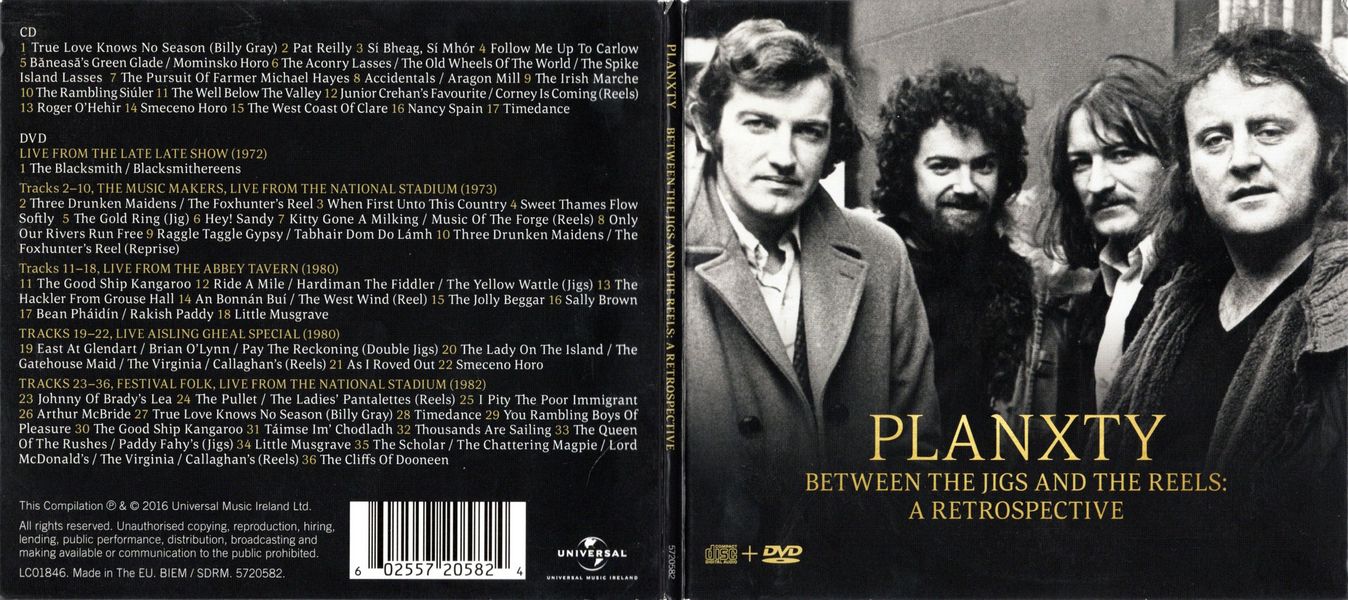
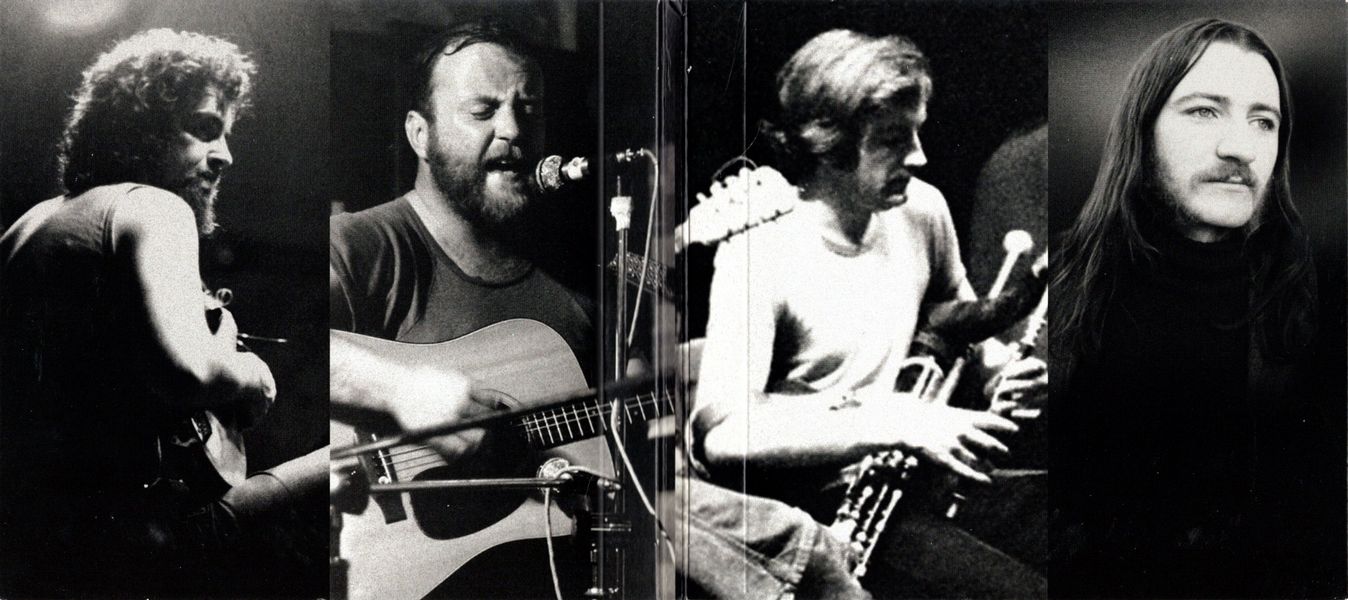
|
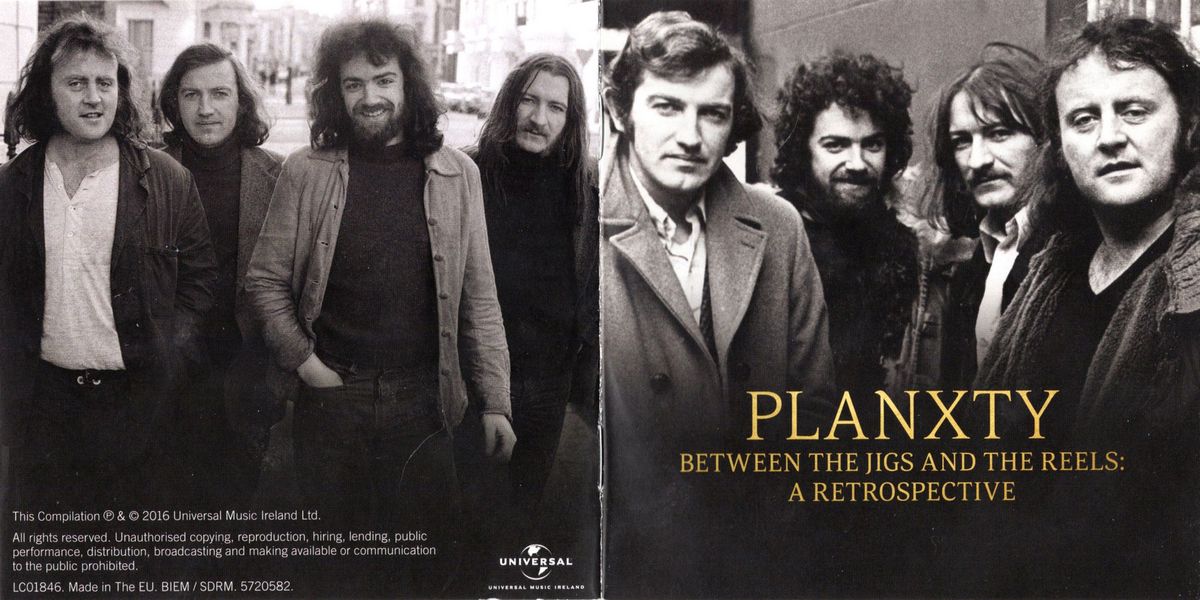
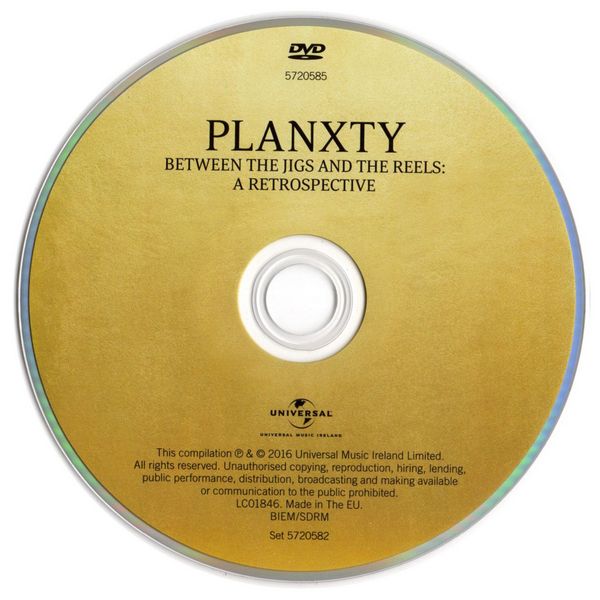
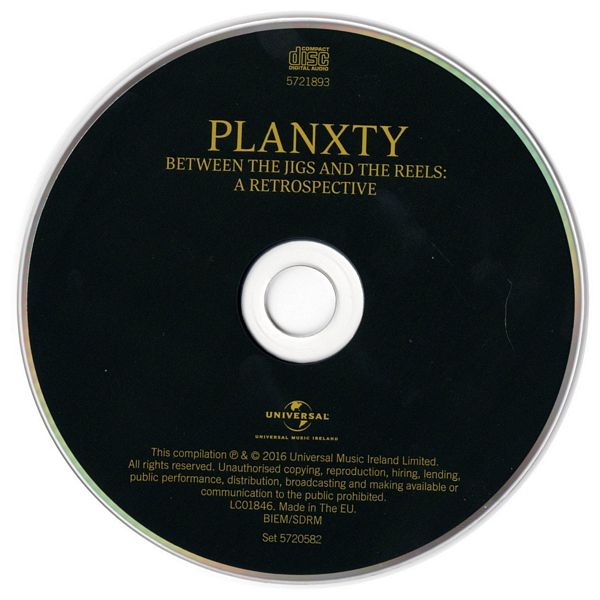 |
Sleeve Notes
The tracklisting of this impressively assembled anthology tells a story in itself. It's the story of a morphing ensemble of musicians, songwriters, collectors, arrangers, and singers with a mutual lust for the discovery of music from different times and different places. The songs and tunes they collected and arranged, including everything from soft introverted ballads to whirling regional fiddle tunes, from haunting airs to skittering Balkan jams, all somehow made sense within this unique narrative of traditional and folk music they had sculpted and named Planxty.
The band though initially formed out of necessity. Christy Moore, the young Newbridge troubadour, had, in his mind, made something of a false start with his debut album 'Paddy On The Road', recorded in Chelsea in 1969 with a studio of pub-jazz musicians who didn't quite have the same empathy for the Irish songs that he had. He didn't make that mistake twice. For his second album 'Prosperous', he set-up shop in the town of the same name in County Kildare, in the basement of the house owned by The Rynne Family. Bill Leader, a leading light of the 1970s 'British Folk Revival', brought his Revox reel to reel to record the album for his Trailer label. To accompany him, Christy hand-picked a band of musicians he felt would have the correct skills and sensitivity to perform these songs. Dónal Lunny was his schoolboy friend who was a gifted multi-instrumentalist and arranger. Andy Irvine of Sweeney's Men was a London-born socialist folk singer, a prominent figure on the O'Donoghue's scene and who co-ran 'The Mug's Gig' folk club with Lunny in Slattery's Pub on Capel Street. Liam O'Flynn was rapidly becoming a true master of the uileann pipes and he was the first piper Moore had ever encountered professionally.
The album itself was a success, the configuration of personalities and instruments generating a new sound for traditional Irish music. Never before had stringed instruments such as guitar, bouzouki and mandolin accompanied the uileann pipes. Anchoring the album and personifying this sound was the coupling of Raggle Taggle Gypsy (a song Moore learned from the great Traveller singer John Reilly) with Tabhair Dom Do Lamh, an ancient Carolan air, that Lunny was somehow able to segue a perfect bridge into. It was this sort of dynamic arranging of songs and tunes that would mark a new era.
The musicians felt an irresistible chemistry, and before long, with Moore returned home permanently from England, a new band was formed; a new band, a new sound and a new look for Irish music. Not unlike the Raggle Taggle Gypsies themselves, Andy, Dónal, Liam and Christy represented a more dishevelled Bohemian image than the formal be-suited school-teachery style people had been previously accustomed to. The bouzouki-mandolin interplay pioneered by Sweeney's Men was in full effect. The piping was otherworldly. The singers were two of the finest of their generation.
From 1972 to 1974 Planxty blazed a trail around Ireland, the UK and mainland Europe, with an exhilarating repertoire of ancient airs, old and new songs and their trademark medleys that could be anything from intricate reels to helter skelter polkas. They made three albums in this period — 'Planxty' (usually referred to as "The Black Album"), 'The Well Below The Valley' and 'Cold Blow And The Rainy Night'. Although the debut album is the most celebrated, perhaps for the inclusion of such seminal titles as The Blacksmith, The West Coast of Clare, Raggle Taggle Gypsy, et al., all three records stand as wonderful documents highlighting the depth of Irish music and the exciting momentum of the early 70s sound.
Of course, that first era of Planxty happened very fast. It was a whirlwind of touring, recording and as much socialising as possible in between. It was no surprise that fatigue set in quickly. Dónal was the first to drop off, replaced by the great Johnny Moynihan, Andy's former Sweeney's Men cohort, for the 'Cold Blow And The Rainy Night' album. Soon after Cold Blow was recorded Christy handed in his notice. It was time to start from scratch with his solo career. Paul Brady was to be his replacement but before Christy left Planxty, he performed with them for one more month at the Edinburgh Festival. The band featuring Moore, Irvine, Moynihan, O'Flynn and Brady provided the music for a play called 'The Fantastical Feats Of Finn McCool'. Brady brought his own exceptional repertoire to the band but they never did get to make an album with him. That first period of Planxty eventually fell apart with Irvine and Brady going on to form a formidable duo and recording several of the songs on the great, self-titled, 'Andy Irvine-Paul Brady' album of 1976.
The folk scene in Dublin at this time was a very social environment, with songs and tunes regularly exchanged in pubs and coffee shops. As a result of this, collaboration and the crossover of band personnel was commonplace. In 1978, the four original members reconvened with fresh repertoire. Christy's solo career was steadily rising. Andy, the eternal rambler, had toured extensively with Paul Brady, also with Mick Hanly and even enjoyed a brief stint with De Dannan. In the intervening years, Dónal had co-founded the Mulligan record label and the Bothy Band, another ensemble of skilled musicians and colourful personalities who gelled influences and very much picked up the mantle from Planxty as one of the most influential groups of their time. From the disbandment of the Bothy Band Lunny brought with him flautist Matt Molloy who became the fifth member of the reformed Planxty.
'After the Break' is an incredible album, recorded in Windmill Lane studios in June 1979, with a typical blend of dance sets and songs arranged as only Planxty know how. Molloy left to join another great band, The Chieftains, after the completion of this album but he did however re-join the band in the studio once again for the fifth studio album, 'The Woman I Loved So Well'. This was an expanded Planxty line-up featuring keyboardist Bill Whelan and acclaimed fiddle/concertinas duo Tony Linnane and Noel Hill and together they made an album of gentle, intricate and exquisite music. The final studio album 'Words & Music' featured an even more extensive appendage of musicians including fiddlers James Kelly and Nollaig Casey, and even electric bassist Eoghan O'Neill. By the time of its release in 1983, Christy and Dónal were already moving onto new pastures with Moving Hearts who would go on to create their own legacy as a vehicle for traditional music to interact more with jazz and rock influences. Planxty activity was sporadic at this time as each member was busy with new projects, solo careers, session work and a highly sought after producer in the case of Lunny.
Andy and Liam tried to keep the Planxty flame lit despite the departure of Christy and Dónal, with Bill Whelan, James Kelly and additionally Arty McGlynn and Dolores Keane but the music they played now was so removed from the original blueprint of Planxty, they had eventually become a different band. Planxty didn't so much end in this period as fizzle out.
Perhaps due to the excitement of the initial impact of the Planxty sound in their first incarnation, the history books tend to reflect less enthusiastically on the records of this period. But the truth is that the albums recorded from 1980 to 1983 house some of the band's most sophisticated music. Consider Andy Irvine's Bulgarian dance, Smeceno Horo — a perfect marriage of two cultures … or Christy's brilliant winding-weaving escapade The Pursuit of Farmer Michael Hayes … or Andy's plaintive interpretation of Si Khan's Aragon Mill … or the nine and half minute untouchable folk saga that is Little Musgrave.
The original Planxty reconvened many years later in late 2003 and performed a series of shows throughout Ireland and The Barbican in London over a period of fourteen months or so. They recorded a live album in Vicar Street which was wonderful. And despite the fact that dreams of a new studio album never materialised, they delighted generations of fans, some of whom never thought they'd witness this timeless music in the flesh.
It's unlikely that'll ever happen again. Nonetheless, this package of Planxty music is an arduously-curated goldmine of recordings, TV appearances and live sets that both the band and their fans deserve. Delve in. Lose yourself in it.
Leagues O'Toole
Dublin, Sept 12th, 2016